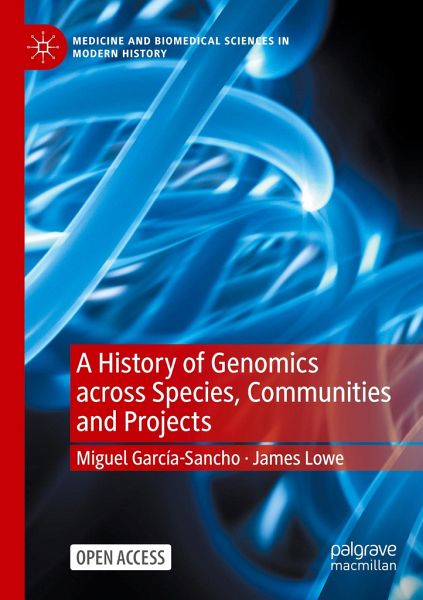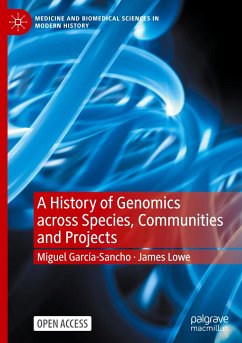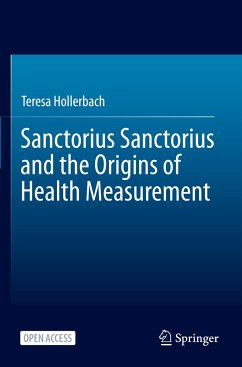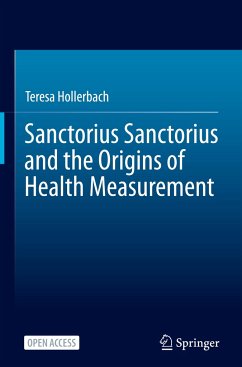
A History of Genomics across Species, Communities and Projects

PAYBACK Punkte
0 °P sammeln!
This open access book offers a comprehensive overview of the history of genomics across three different species and four decades, from the 1980s to the recent past. It takes an inclusive approach in order to capture not only the international initiatives to map and sequence the genomes of various organisms, but also the work of smaller-scale institutions engaged in the mapping and sequencing of yeast, human and pig DNA. In doing so, the authors expand the historiographical lens of genomics from a focus on large-scale projects to other forms of organisation. They show how practices such as geno...
This open access book offers a comprehensive overview of the history of genomics across three different species and four decades, from the 1980s to the recent past. It takes an inclusive approach in order to capture not only the international initiatives to map and sequence the genomes of various organisms, but also the work of smaller-scale institutions engaged in the mapping and sequencing of yeast, human and pig DNA. In doing so, the authors expand the historiographical lens of genomics from a focus on large-scale projects to other forms of organisation. They show how practices such as genome mapping, sequence assembly and annotation are as essential as DNA sequencing in the history of genomics, and argue that existing depictions of genomics are too closely associated with the Human Genome Project.
Exploring the use of genomic tools by biochemists, cell biologists, and medical and agriculturally-oriented geneticists, this book portrays the history of genomics as inseparablyentangled with the day-to-day practices and objectives of these communities. The authors also uncover often forgotten actors such as the European Commission, a crucial funder and forger of collaborative networks undertaking genomic projects. In examining historical trajectories across species, communities and projects, the book provides new insights on genomics, its dramatic expansion during the late twentieth-century and its developments in the twenty-first century. Offering the first extensive critical examination of the nature and historicity of reference genomes, this book demonstrates how their affordances and limitations are shaped by the involvement or absence of particular communities in their production.
Exploring the use of genomic tools by biochemists, cell biologists, and medical and agriculturally-oriented geneticists, this book portrays the history of genomics as inseparablyentangled with the day-to-day practices and objectives of these communities. The authors also uncover often forgotten actors such as the European Commission, a crucial funder and forger of collaborative networks undertaking genomic projects. In examining historical trajectories across species, communities and projects, the book provides new insights on genomics, its dramatic expansion during the late twentieth-century and its developments in the twenty-first century. Offering the first extensive critical examination of the nature and historicity of reference genomes, this book demonstrates how their affordances and limitations are shaped by the involvement or absence of particular communities in their production.














